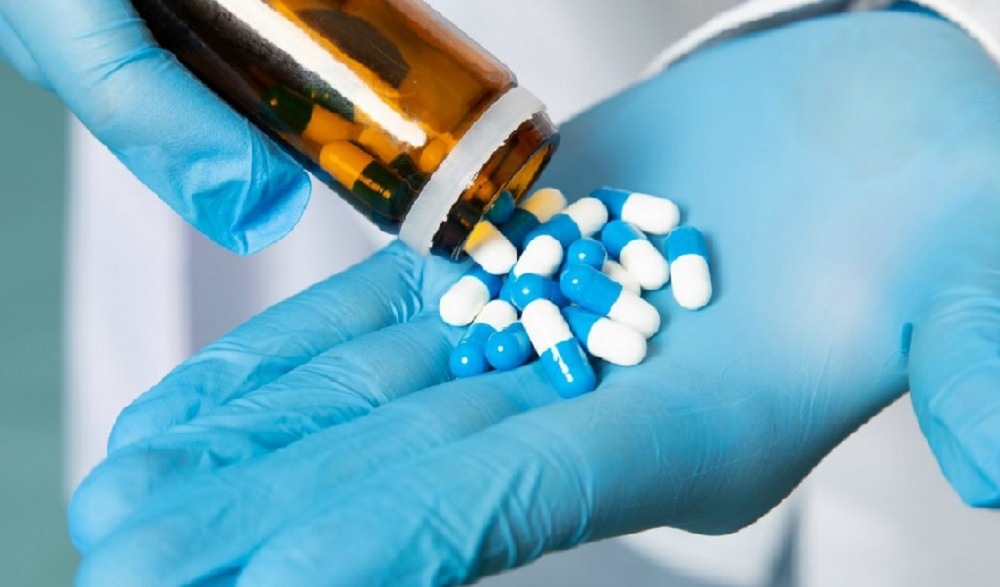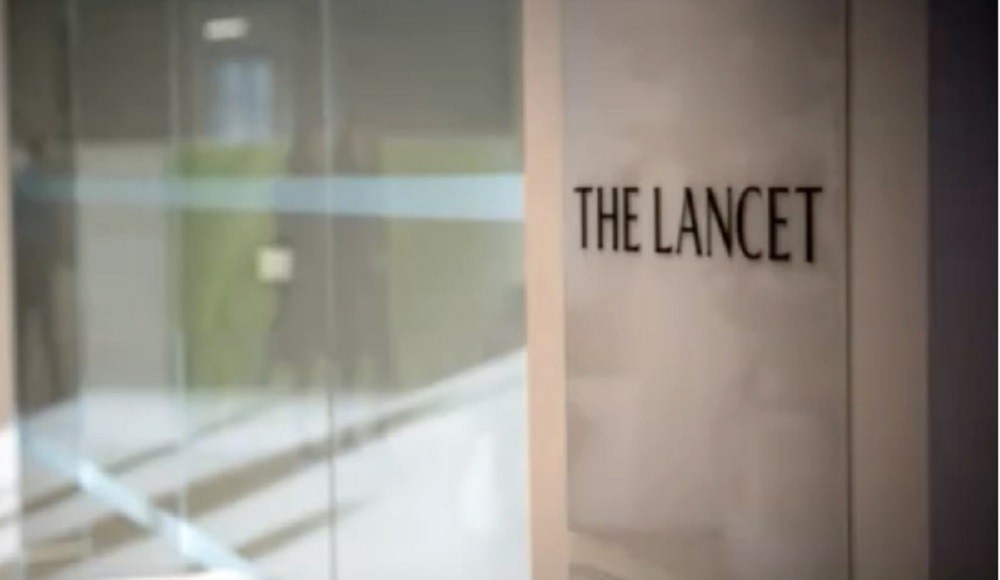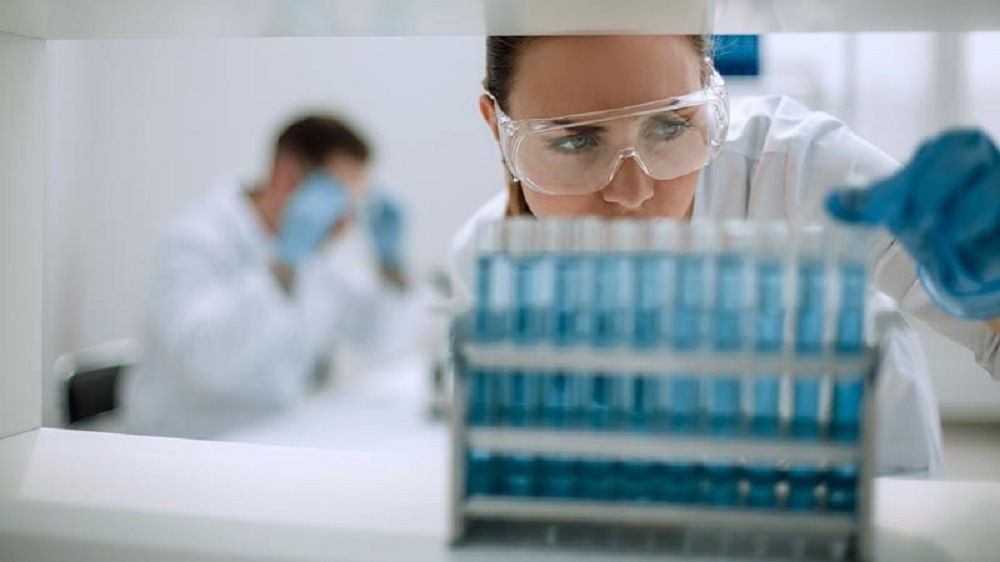RIO DE JANEIRO, BRAZIL – “Chloroquine is back!” celebrated President Jair Bolsonaro on Friday evening, JUne 5th. He was referring to another chapter of the soap opera involving the ‘comings and goings’ of research on its effectiveness – or otherwise – in the treatment of patients with the novel coronavirus.
This week, The Lancet withdrew from its site – at the behest of its authors – the global study that found that chloroquine and its derivative, hydroxychloroquine, offered no benefit to patients, and could even increase the risk of death in 30 percent of cases. Doubts regarding the research prompted the World Health Organization (WHO) to announce that it will resume testing with the drugs, interrupted after the study was published.

While researchers from all over the world are debating the substance’s efficacy and, in particular, its side effects, in Brazil its production moving full steam ahead, as the pills have been prescribed by the national health system (SUS) even to asymptomatic patients, contrary to the current Ministry of Health protocol.
This was the case with cook Lucas Bittencourt, 23, from the city of Porto Feliz, 118 kilometers from São Paulo. He took the PCR test, which shows the presence of the coronavirus, at the request of his boss who is part of the risk group. To his surprise, since he had no symptoms, the test came back positive.
“As soon as I heard this, I went to the health center. They asked me to isolate and they gave me the medication,” he says. The drugs he mentioned are part of a kit with seven drugs that comply with the early treatment protocol enforced by the city for suspected covid-19 cases.
The kit includes hydroxychloroquine (to treat malaria and autoimmune diseases), azithromycin (antibiotic), ivermectin (vermifuge), celecoxib (autoimmune diseases), paracetamol (fever and body pain), metoclopramide (nausea and vomiting), and enoxaparin (anticoagulant).
After taking the cocktail, the cook claims to have felt anxiety, stomach cramps, and diarrhea but obeyed the health center’s guidance. “I wasn’t afraid to take the chloroquine,” he says. “If they recommended it to me, then they must know what they’re doing.”
The Porto Feliz City Hall announced in a statement that “there is no distribution of kits in the municipality”. It added that the chloroquine prescription protocol is only for symptomatic patients following tests such as renal and hepatic function, chest tomography, and an electrocardiogram ordered by a cardiologist, as well as the “formal authorization of each patient.” Then, and only then, will the doctor decide “whether or not the use of hydroxychloroquine and the other drugs that make up the protocol may be safely prescribed”.
Late last month, the Ministry of Health issued new guidelines for chloroquine and hydroxychloroquine use, not exclusive to severe patients – as was formerly the case – but also to patients with mild symptoms of the disease, provided that both doctor and patient agreed. The use of these drugs, strongly advocated by President Jair Bolsonaro, disregards the fact that studies on their use are still inconclusive. The protocol also conflicts with the findings of the only Brazilian research on the drug.
On April 18th, the Oswaldo Cruz Foundation (Fiocruz) published a note stating that high doses of chloroquine were not indicated for the treatment of severe Covid-19 patients, and that it was not yet possible to attest to its efficacy in treating the disease. The results, still initial, have not progressed and there is no conclusion on the study.
Consequently, the Federal Court of Auditors (TCU) granted the Ministry of Health and the National Health Regulatory Agency (ANVISA) ten days, starting June 3rd, to explain the expert and legal grounds that led to the new protocol. TCU judge Benjamin Zymler stressed that this new guideline may increase public spending on health, both with the purchase of the drug and with the performance of tests.

In fact, by late May, the Army Pharmaceutical Chemical Laboratory (LQFEx) had already produced 1.25 million chloroquine tablets to meet the Ministry of Health’s demand. Before the onset of the Covid-19 crisis, LQFEx would produce a batch of 250,000 tablets every two years, to meet the exclusive demand of the Brazilian Army, for the fight against malaria.
The figures for drug production are high compared to preceding years, but the Ministry of Health has already distributed four times as much to states. To date, 4.3 million chloroquine tablets have been sent to state health departments across the country.
According to the portfolio, four companies have valid registrations with ANVISA to supply the drug: Apsen Farmacêutica, Sanofi Aventis, Medley Sanofi in Brazil, and EMS Indústria Farmacêutica. They are responsible for supplying the public and private market in the country.
Of the total number of tablets distributed, almost one million were shipped to São Paulo, the epicenter of the pandemic and the state with the highest number of cases and deaths by Saturday, June 6th. Despite the large shipment received, governor João Doria recalled in an interview that “science does not recommend [the use of the drug], except in very special cases, with a medical prescription and patient acceptance, because the side effects are very serious, particularly for the heart”. He classified the federal government’s guidelines as a “deliberate willingness to recommend its indiscriminate use”.
However, São Paulo’s municipalities are not necessarily in line with the governor. In an interview, the mayor of Porto Feliz, physician Antonio Cássio Prado, stated that the kit distributed by the network to people like cook Lucas Bittencourt, mentioned above, costs less than R$40 (US$8) and “is effective in the initial stage of the disease, in the first five or six days”.
The case of Bruna Torres de Lara, 27, was different. She sought out the Porto Feliz health center with body pain, shortness of breath, and excessive coughing. She had an electrocardiogram, blood tests, and a CT scan, which detected a spot in her lung. She left with a prescription and a kit including the seven drugs. She was not tested for the novel coronavirus on the public network but chose to follow the five-day protocol and two-week isolation. She signed the consent form, which clearly states the risks of the drugs.
“I don’t know if it was over-medication, or if it was the hydroxychloroquine, but one day I felt unwell, I had a headache, cramping, diarrhea,” she says. The symptoms didn’t last long, but she decided to run the PCR test on the private network to be certain. The result came out a week later after she finished her meds, and it was negative for the coronavirus.
The Porto Feliz City Hall was unwilling to share the expert protocol with this reporter, as well as failing to answer on which study it is grounded. Its communication office reported by phone that it is the same as used in the city of Floriano, Piauí, which drew the attention of the Minister of Women, Family and Human Rights, Damares Alves.
The Minister said she was “impressed” by the “miracle of the use of chloroquine associated with other drugs,” after visiting the city of about 60,000 inhabitants, which allegedly had achieved positive results with the drugs. The protocol was recommended by Marina Bucar Barjud, a doctor from Piauí who works at the HM Puerta del Sur Hospital in Madrid, based on her experience in Spain.
“What more do you want, an angel to come down from heaven and say that the drug works? There are thousands of scientists in the world attesting to it, doctors all over the world attesting to it, what more do you want?”, said Damares at a press conference during her visit to the Tibério Nunes Regional Hospital in the second week of May, which uses the protocol. The city of Piauí recorded 18 deaths and 82 confirmed cases; 39 people have recovered from the disease.
The reporter tried to talk to Marina Bucar, who has been giving advice on the protocol to Brazilian municipalities, but according to her brother, physician Walter Bucar Barjud, the doctor is “very busy, important advice, training and guidance for doctors who are saving lives with her help” and will not be able to give an interview.
Theoretical discussions
This is not the first time that research on drugs has been dropped from a scientific publication. On May 20th, medRxiv magazine removed the first study that recommended the use of chloroquine and hydroxychloroquine in Covid-19 patients. The work of French researchers has gained worldwide repercussions, prompting leaders like US President Donald Trump to advocate the drugs. The indiscriminate use of the drugs after the publication, in particular outside the hospital environment, has raised concerns in the US Food and Drug Administration (FDA).
“We allow its temporary use only in hospitalized Covid-19 patients when clinical trials are not available or participation is not feasible,” the FDA said. According to the body, “these drugs have several side effects, including serious heart rhythm problems that can be fatal”.
The work of French researchers prompted a flood of criticism for the methodology and reduced sample – only 30 patients – which led its authors to ask for the research to be removed and also that it would not be mentioned in other scientific papers. “Because of the controversy over hydroxychloroquine and the nature of their study, they [the authors] would like to assess the manuscript after methodological review,” the scientific journal said in a note.
The study advocating chloroquine and hydroxychloroquine fell just when a study considered more robust was released in The Lancet. The study claimed it had been conducted with 96,000 patients in 600 hospitals around the world, including Brazil. The research seemed to have settled the matter by categorically stating that the drugs increased the risk of death and deteriorated the heart.

France and Italy have banned its use, while Belgium has cautioned against its use outside clinical trials. But it hasn’t been reviewed by the scientific community either. An open letter signed by over 120 researchers criticized inconsistencies in the study. The Spanish drug agency concluded that the study did not provide solid evidence and recommended continuing clinical trials with these drugs in the country.
In parallel, an investigation by the British newspaper The Guardian disclosed issues with the data provided by the US company Surgisphere, whose patient and medical study database was used in the research.
The Surgisphere data from Australia showed a higher death toll than that confirmed by the country’s government. The company – which has few professionals in the media area among its employees, but curiously has a science fiction writer and a porn actor on the team – refused to release access to the database on the grounds of confidentiality.
Source: El País

